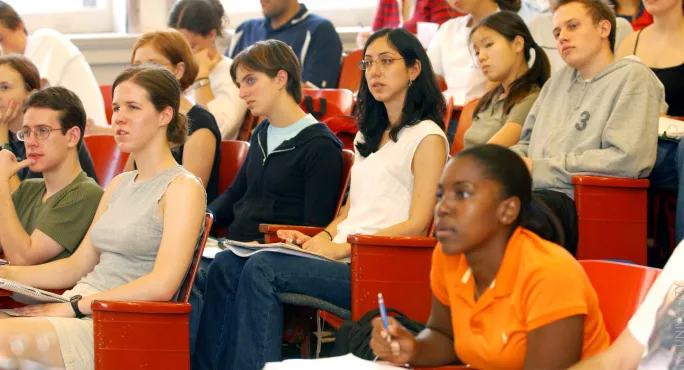- Home
- England has ‘lost its way’ in vocational education, warns new report
England has ‘lost its way’ in vocational education, warns new report

England has “lost its way” in vocational education and should adopt features of the systems in France and Germany, according to a new report released today.
The study, by the Politeia thinktank, looks at the differences between education systems in England, France and Germany.
The French and German systems, while different, both have selective elements in education and set higher standards, says the report Reversing Decline: vocational training and education for a hghly skilled workforce.
In these countries “pupils are inspired and encouraged during school years to follow the technological pathway, with the abler encouraged to follow through to tertiary education”.
Another difference between England and its European neighbours is that in France and Germany, secondary age teachers have degrees in the subjects they teach, with vocational teachers expected to have relevant qualifications.
England ‘has neglected vocational education’
The French system has promoted the most academically able talent and, like Germany, combines vocational and technological training with high standards of continuing general education, says the report.
It claims that England has “neglected vocational education and training while also failing generally to nurture the academically most able”.
The report says: “This country, though poised to follow the same path as its neighbours when it extended secondary age education to all after World War Two, failed to develop technical education, abolished most of the academically focused grammar schools and imposed a uniformly low-level curriculum and exam system for all.”
It describes England as “a country that has lost its way in the education and training of school-age pupils”.
The report argues that “the mix of funding and qualifications policies and priorities for the post-16 FE sector has meant that education and vocational training to equip the workforce has very often been at the mercy of stop-gap solutions when its local industry closes its doors”.
It adds: “Although for 16- to 19-year-olds further education colleges have continued to provide courses, the FE system did not aspire to the standards established in Germany or to the range and diversity of French or German vocational and technical routes.”
Teachers ‘must be experts in their subjects’
The academic qualifications needed to teach at school are as a whole pitched far lower than those in France and Germany, according to the report.
“The message is that entrants to the profession are not obliged to be of a high academic standard or be very well educated; nor do they need to have studied the subject they will teach in any depth.
“The focus must be on recruiting the most academically and vocationally gifted into the teaching profession. Unlike either continental neighbour, this country has failed to ensure that as a rule school teachers are academically competent, let alone gifted in the subjects they teach.”
The report recommends that those taking the vocational route post-16 should continue with a “rigorous system of general education” alongside their vocational studies.
“Differentiation and selection after 16 should allow different standards for different aptitudes in each of the academic and vocational routes,” it adds.
The thinktank also calls for “differentiation by ability, pre-16 as well as post-16” and for “technological teaching”, maths and science to be included in the curriculum from 11 “with encouragement to the able to follow that pathway post-16 through to specialist tertiary education”.
In addition, “high academic and vocational standards” should be “the rule for teachers in the subjects they teach at school”.
Dr Sheila Lawlor, author of the report and director of Politeia, said: “As the evidence from France and Germany shows, if we want to equip young people to be more than cogs in a production line, they will need to continue their academic subjects and combine these with rigorous theoretical training in their chosen vocational fields.”
Call for more funding
Mark Dawe, chief executive of the Association of Employment and Learning Providers, said: “Lessons from around the world are incredibly valuable but we must not fall into the trap of assuming that they can be replicated in this country without understanding the culture, the history, the processes and the relationship between government, employers, the education system and society.”
He added: “There are legitimate questions to be asked about a schooling system here which results in half of school leavers lacking good passes in English and maths and frequently leaves the post-16 vocational learning sector to pick up the pieces.”
The report highlights the need for greater spending on education and training, particularly in the context of Brexit, according to Julian Gravatt, deputy chief executive of the Association of Colleges. He said: “Regardless of what happens in other countries, the UK should be spending more on education and training. A longer target to raise public education spending to 5 per cent of GDP would be a rational objective.”
A Department for Education spokesperson said: “The government wants everyone to be equipped with the skills they need to get on in life and succeed in the jobs of the future.
“That’s why we are overhauling the technical and further education sectors, working with employers to improve the quality of apprenticeships, as well as to increase their take-up, and investing £500 million a year in our new world-class technical qualifications, T levels, equal in esteem to A levels.”
Keep reading for just £1 per month
You've reached your limit of free articles this month. Subscribe for £1 per month for three months and get:
- Unlimited access to all Tes magazine content
- Exclusive subscriber-only stories
- Award-winning email newsletters



